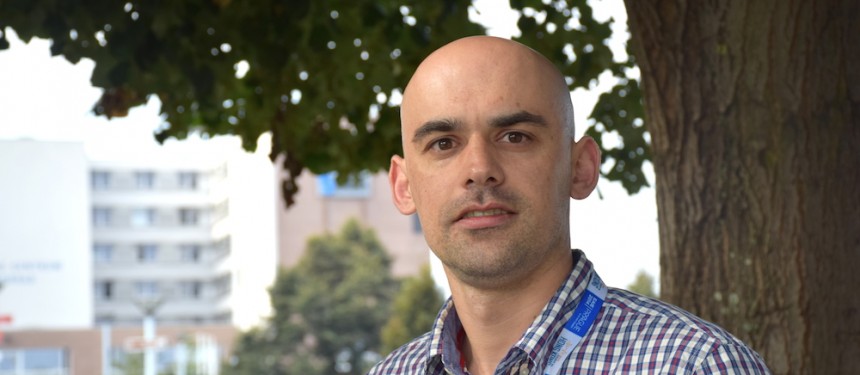SH: What amazes me is the hunger for education that these people have. They were fighting between 1983 and 2005 when they didn’t have the chance to study or do anything other than fight.
News and business analysis for Professionals in International Education
Have some pie!
Dr. Savo Heleta, NMMU, South Africa

“What amazes me is the hunger for education that these people have”
When the war ended they could either stay with the army or go into government institutions. Those in government institutions had no education or skills that could actually help them do their jobs properly which is why their government called on us. They asked us to put together something flexible, different and skills-based. We structured it around leadership, economics, development, politics and international relations.
To see these people come to university and watch them changing over three years been an amazing experience. Their bosses, all the way to the President of the country can see the impact of education on them and the work that they do.
Many ended up as heads of departments in ministries and members of the national parliament, and every time they get a promotion they tell us ‘without the education that you gave us, we would never be able to do this.’
The PIE: What’s your vision for international collaboration to assist countries that are emerging from conflict?
SH: I’d like to see rebuilding higher education becoming a priority. There’s so many other priorities after a war, there’s the humanitarian crisis, health, basic livelihoods, basic education and if you mention higher education people say well that’s luxury, we can’t talk about that now, we need to save lives.
I’m not saying that the rest isn’t important but also if you look at the bigger picture, what is going to happen in five, 10 or 15 years from now? Will the aid workers and foreign aid still be there? If we don’t assist countries in building higher education institutions and capacity so that they can be responsible for building their own human capital, it’s going to be impossible for these countries to even think about a better future.
“There’s so many other priorities after a war and if you mention higher education people say well that’s luxury, we can’t talk about that now, we need to save lives”
The UN has a pool of money that is used for post-war recovery, and out of that money, there’s about 2-3% that goes towards rebuilding education and higher education gets a tiny percentage within that. Funding is essential because universities cannot assist on their own.
The PIE: What can higher education institutions across the world do to help rebuild higher education in post-conflict countries?
SH: Universities have their own priorities, but I really hope that we can make rebuilding higher education in countries that are trying to recover from conflict a priority. It’s important for associations like NAFSA, EAIE and IEASA in South Africa to add this to the agenda and acknowledge the importance of academic solidarity within regions that need assistance.
“There are many ‘intervention-style’ and ad hoc projects around but we need to help HE systems and institutions reform and rebuild”
There are many ‘intervention-style’ and ad hoc projects around but what we need is to think about helping HE systems and institutions reform and rebuild. This can happen on many levels: we can do joint research, we can do staff and student exchange, we can work on joint teaching projects, we can do a lot of different things.
If we don’t think about development issues immediately after the end of conflict, as well as job creation, rebuilding of infrastructure and universities, it may to be too late in five years or a decade. Conflict might start again because people had no opportunities for education or employment because we were only focusing on humanitarian issues.
Still looking? Find by category:



Good day Doc, hope my mail finds you well. I must re-emphasize what an honor to have met you during the Golden Key Seminar at NMMU in February and hearing your life experience was exhilarating and fascinating. I must say I hoped to communicate with you soonest at the Golden Key Seminar but have been here and there and couldn’t find your direct contacts. Please kindly send me an email at info@maspoe.co.za so we can keep in touch.
Yours Truly,
Bongani Makofane